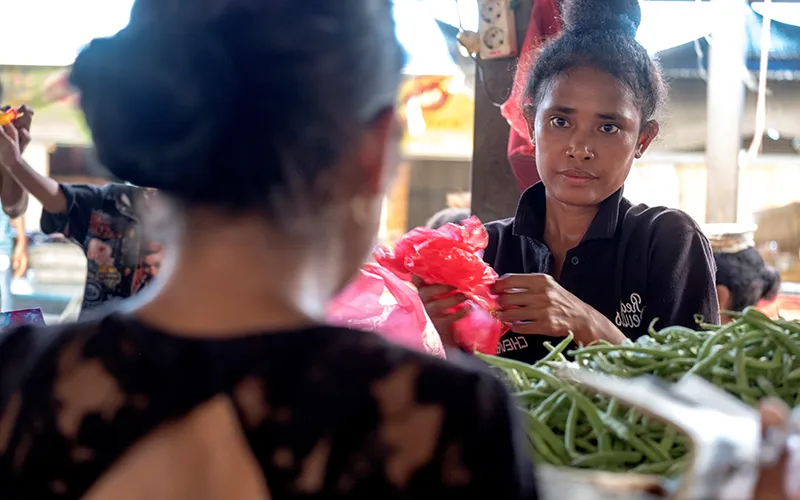Quickly getting food to the hungry is vital while battling Covid-19
In Timor-Leste, an opportunity to explore innovation and best practices in distributing food during a pandemic.
It has become increasingly clear that the problem of food insecurity needs special attention when addressing the impact of Covid-19.
| Even before the pandemic, the food security situation in Timor-Leste was fragile. Photo: ADB |
The suspension of public transportation, disrupted local and international food supply chains, and travel and movement restrictions have caused loss of income and severe shortages of food across Asia and the Pacific, especially for the poor and most vulnerable.
Food insecurity was already acute among the world’s 820 million poor and vulnerable, even before the advent of Covid-19. In conflict-prone states where physical access remains a challenge, and in countries suffering from extreme natural hazards such as floods and droughts, food insecurity has been worsening. We are now dealing with a crisis within a crisis. The pandemic undermines the key foundation of food security: food availability; food access; food utilization; and food stability. In this context, what has started as a global health crisis could become a global food crisis if overlooked.
This is particularly true in Timor-Leste, which had a severe food insecurity situation even before the pandemic. Timor-Leste ranks 110 out of 117 in the Global Hunger Index and relies heavily on food imports. 75% of the population are food insecure while 50% of children under five are stunted. The economic cost of undernutrition ranged from $65 to $180 million in 2016.
The pandemic has had devastating consequences on an already desperate situation in the country. In fact, local surveys confirmed that the food situation of the vulnerable population was deteriorating rapidly. District heads were requested urgent food distribution as part of Covid-19 assistance.
Rapidly getting food to the people who need it most is being done around the region, and there are strong examples to emulate. In the Philippines, an innovative program combined the country’s principles of community sharing with urgent food distribution.
There are other noteworthy examples as well. A Vietnamese entrepreneur in Ho Chi Minh City has invented a “rice ATM”, a 24/7 automatic dispensing machine providing free rice for people who lost their jobs because of the pandemic.
In Timor-Leste, urgency was a key factor in delivering food assistance. A US$1 million project financed by ADB, and implemented with United Nations Development Programme support, quickly disbursed emergency assistance that included direct and local sourcing of nutritious food from local farmers who had not been able to sell their products due to Covid-19.
The farm-to-table emergency food distribution is an innovative approach compared to standard food emergency support, which relies on canned and processed food. The project is expected to reach 25,000 people in five municipalities and sustain the families for about three months. It ensures food and nutrition security for the most vulnerable households, boosting their immune systems, and preventing social tensions and the further spread of Covid-19. It will also help prevent wasting and stunting in children under five, and provide an economic boost to local, micro and small farm enterprises.
Getting food to the most vulnerable while at the same time supporting local farmers and food distributors are just two elements of a successful food distribution system during Covid-19. The further development of effective and innovative practices to enhance food security during the pandemic is vital. Nobody should ever go hungry.
Stefania Dina is Senior Natural Resources and Agriculture Specialist, Southeast Asia Department, Asian Development Bank.











